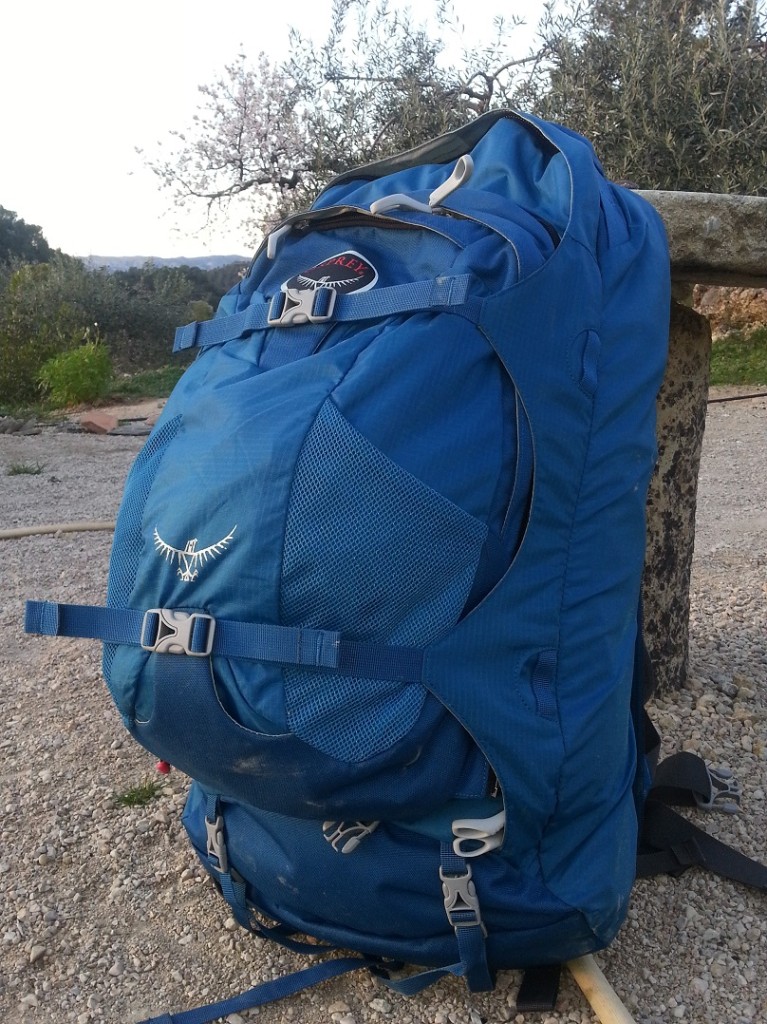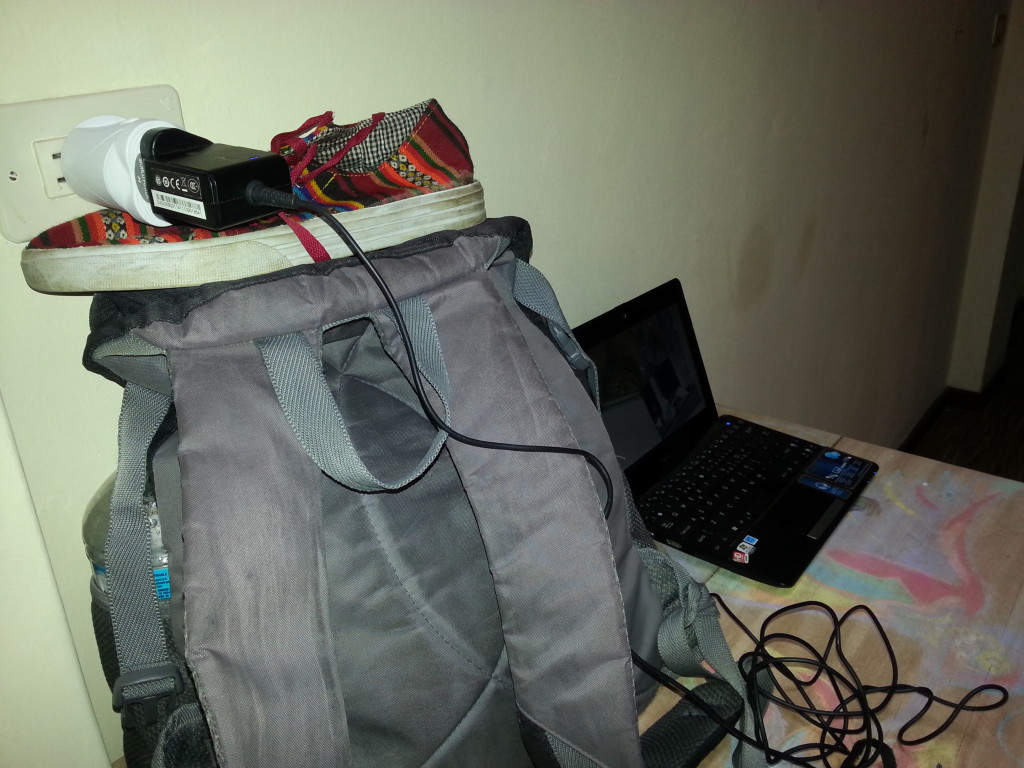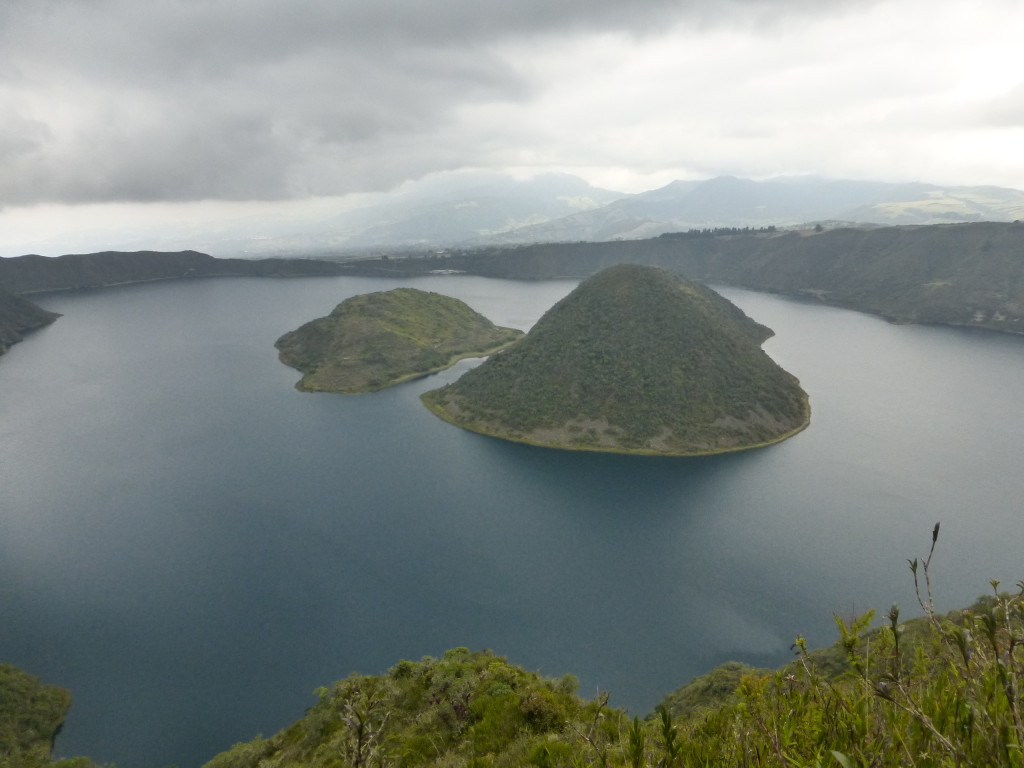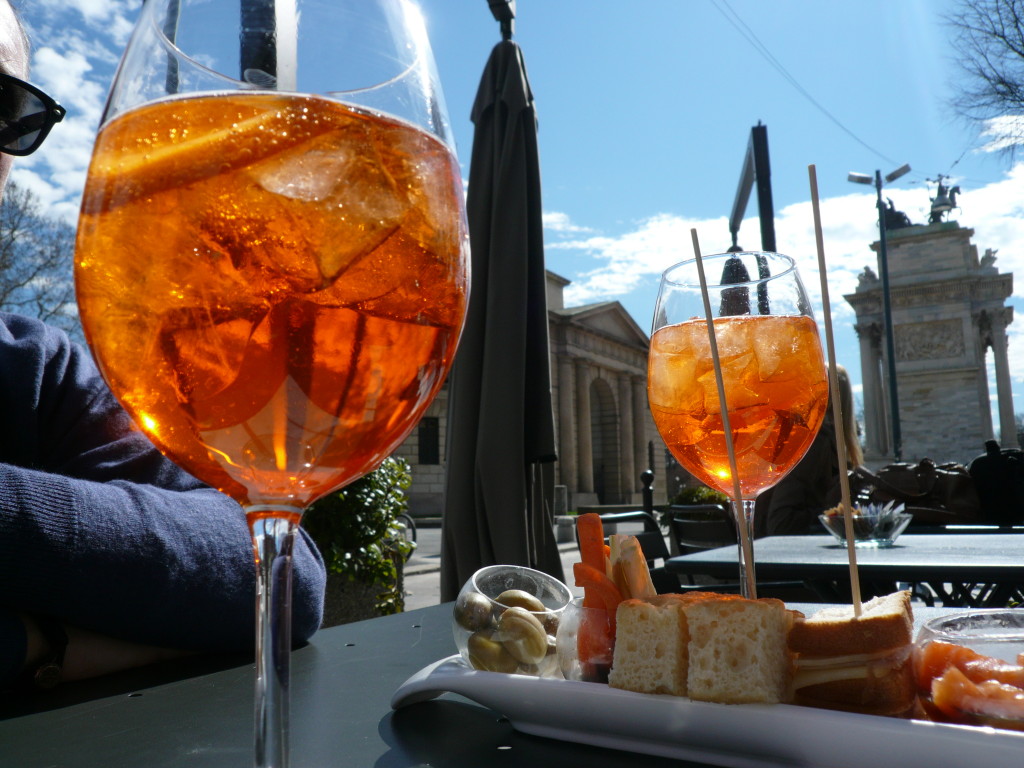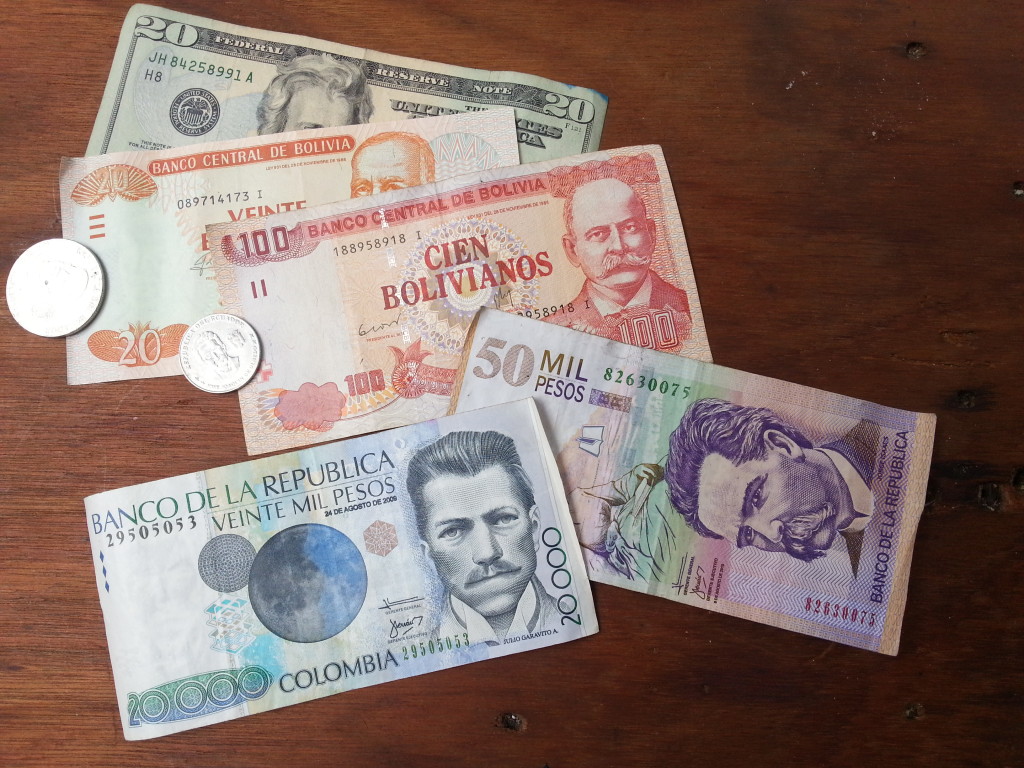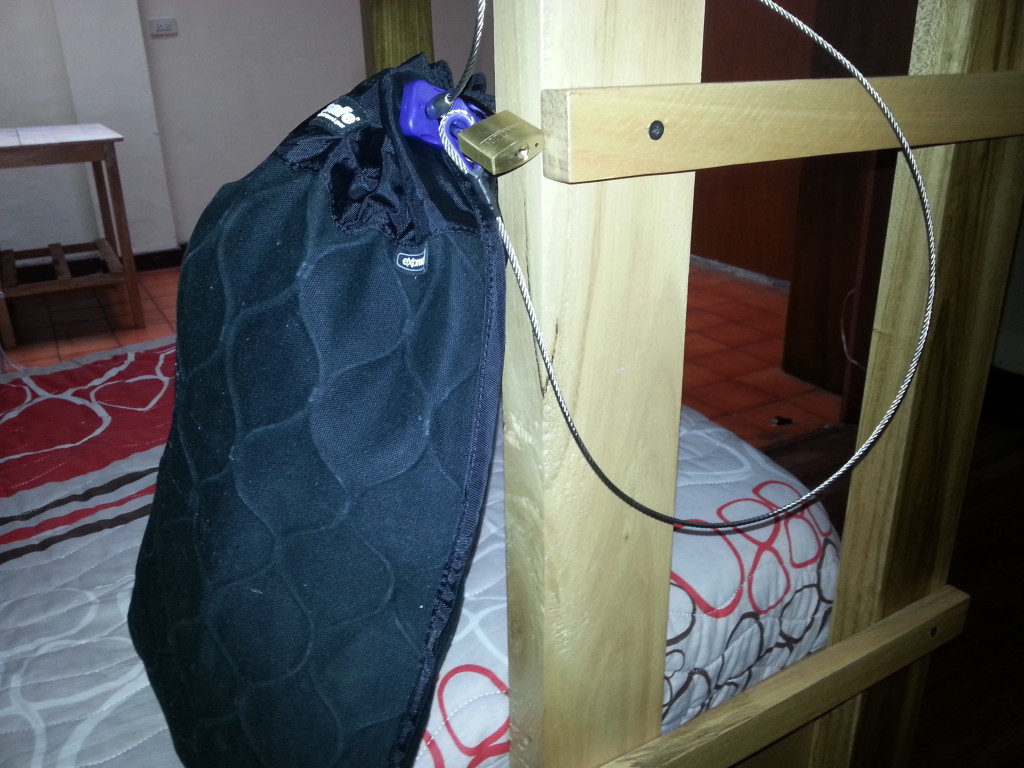
by Jane | Apr 14, 2015 | My travels, Travel Gear, Travel Tippets |
Confidently striding through a new city with all of my possessions. In the wrong direction!
If you are following my recent adventures as I have travelled from Helsinki through Estonia, Latvia and Lithuania you will know that there has been one recurring theme.
I keep getting lost! This is quite unusual for me as I am normally very careful to be aware of my surroundings. Trying to find my hostel in Vilnius was another story. I got off the bus at the station with my full back pack and I confidently turned right and set off up the first proper hill that I had found in any of the Baltic countries.
And it was the wrong way. I readjusted my useless internal navigation system and got back on track. The sun was out, I was wearing my thickest hoodie and a coat and there were some very dodgy characters hanging around in the back streets. I was hot, tired and thirsty. But I was determined not to pay out for a cab because I knew that the hostel was close and it was a matter of pride that I should cope.
And as I tramped along the cobbles I was thanking my lucky stars for the day that I met Paul at Nomad Travel and he gave me my backpack, the Osprey Farpoint 55 (click here for more information)

Osprey Farpoint 55 zipped together
The smaller size compared to my previous bag obviously meant that I was carrying less weight which was a big bonus but the bag is so well balanced it is a dream to walk with. I was fully laden wearing my iTravel shoulder bag containing my valuables slung across my body and the smaller, detachable daypack from Osprey on my front, but because of the ingenious clip system which attached it to the main pack, my arms and hands were free.
The strap system fitted my frame size and the weight was carried on my hips and it is a tiny detail but the whistle on my sternum strap and close to my mouth gave me a ridiculous feeling of safety when the beggars began eying me up in an unsavory way.
It takes a while to get used to a rucksack when you are on the road and living from hostel to hostel. You certainly don’t want to unpack every time but certain things need to be easily accessible or put away in the lockers. After a couple of weeks on the road I was finally comfortable with my packing system and I could quickly find most items – helped enormously by the huge zip which opens the bag like a suitcase.

obviously the boots don’t go in
My initial fears about the straining zips have (touch wood) proved unfounded and there has actually been a little bit of give in the fabric which has eased both the bag and my mind slightly. I have worked out how to clip the bags together (the little one on my front) when I am wearing them (that took a bit of practice but I got there) and when the two bags are strapped together I am practiced in accessing one or the other without separating them.
The iTravel shoulder bag is also a bit of genius kit. Out and about in cities it doesn’t attract the attention that a camera bag might but the clip system means that I feel very safe from pickpockets. It has internal pockets which can be adjusted so there is less scrabbling around looking for something and it is coping with my two netbooks that I am currently lugging around.
I eventually reached my hostel in an extremely confused state – not helped because the town square of Vilnius is anything but, and is an elongated triangle, but I was extremely proud of my achievement and for once, there was no need to swear and curse how much I hated my rucksack as I lowered it off my back. I LOVE it!

The perfect combo

by Jane | Oct 15, 2014 | Travel Tippets |
I could devote a whole book to travel tips (now there’s an idea) but here are just five things for you to think about, but even if you are not travelling, these tips could save you a lot of stress and hassle
6. You will need a travel adaptor
Many plug sockets around the world are different and you will need an adaptor to enable you to charge your camera and phone etc. I assumed that everybody knew that plugs were different but the number of people who look at my adaptor and wonder at it proves otherwise.
I paid extra for an adaptor which converts every type of plug to every other type of plug which is great for travelling across different countries. I would advise shopping around for the smallest one that you can find as often sockets are located behind furniture and there may not be enough room to plug in a large adaptor – either that or the weight of the adaptor can cause it to fall out of the socket. I very often have to build a tower of my rucksac, backack and shoes to prop up my (too large) adaptor when I want to charge something. I also have an adaptor which converts my USB to fit into the universal adaptor – although you can buy these all-in-one now.

my power tower
5. Toilet Paper is Currency
ALWAYS carry toilet paper. I could write an entire blog post on the types of toilets that you might encounter but for now, believe me, you should always carry some paper. In some countries the paper truly is currency – go to Cuba and you will find that the people on the street don’t ask for money but they ask for far more valuable items such as shampoo, soap and toilet paper. In many public toilets you have to pay for entry, but they hike the price up if you also want to purchase some paper at the entry. Just get into the habit of always stuffing some into your pocket each day.

It’s a long way back to the bathrooms
4. No corkscrew?
I have my mate George to thank for actually demonstrating that this one works. Have you ever got back to your hostel with a bottle of wine and found that the corkscrew has gone missing? Well, don’t panic. I know that this trick works.
First remove the foil from the top of the bottle and stand the bottle upright in a shoe (a trainer type shoe is the best). Keeping the bottle in the heel and holding both the bottle and the shoe firmly (one hand on each) but retaining the bottle in the shoe, pick the shoe (and the bottle) up and place the shoe against a wall. The bottle will now be at right angles to the wall, with its bottom in the heel of the shoe. Yes – it is tricky I know, but it does work. Now bang the shoe several times against the wall, but DON’T LET GO of either the shoe or the bottle.
Provided that you dont drop the bottle, the cork will begin to ease out. Just make sure that the final ‘bang’ is not so hard that you lose some of the precious wine and voila – enjoy!

imagine not being able to open the bottle
3. Safeguard your cash
Use a purse or a wallet which has several pockets and compartments. Get into the habit of placing different denominations of notes in their own pockets. This removes the need to pull out a wad of unfamiliar cash in a shop or in the street which can draw unwanted attention to yourself. You can simply pull out the appropriate amount- also useful in dimly lit taxis at night.
Don’t keep all of your cash in this purse either. Always have some small denomination notes or coins in a pocket or a sock for the quick purchase on the street, and keep one larger note, (just in case your purse is snatched) in your shoe or your bra if you wear one. I can personaly vouch for the stress-reducing factor of this tip. My purse was lifted from my rucksac at the Colombian/Ecuadorian border but luckily I had enough cash hidden about me to get the onward bus.

organise your bank notes
2. Splurge on a PacSafe. They are not cheap, but I am so glad that I bought one. They come in various sizes. Mine is a bit bigger than a hot water bottle and it is made of some super strong material which has a steel mesh incorporated into it. It is big enough for my little netbook, my purse. my box of treasures and other bits and bobs. The whole thing is secured by a steel cable and a padlock which you attach to something in your room – the ladder of a bunk bed is good, or even the pipework behind the basin in the bathroom.
If lockers are available in my hostel or hotel I do use those but if not, the peace of mind that the Pacsafe gives me is worth its weight in gold. I have to admit to using it even on the odd occasion when I have a private room. It is far better to be over cautious than to lose your passport or smart phone
I also carry my own high tensile steel cable with loops at each end and a spare padlock and keys. Lockers are not usually supplied with padlocks and on a couple of occasions when travelling with friends we have secured everything with my cable

better safe than sorry
1. My top tip – and I have witnessed this one working on several occasions is how to save your mobile phone if it gets wet.
Immediately remove the back, shake hard and dry off the battery and the Sim card. As soon as possible bury the phone and the battery into a bag or a box of rice. Leave it for at least 48 hours. You may need to leave it for up to 5 days in the rice but have faith – it will usually work.
I have seen phones come back to life after being immersed at the bottom of swimming pools and dropped down toilets. They can be expensive bits of kits and a valuable lifeline if you are travelling. They double up as cameras, you can send and receive your emails and access the internet. You do not want to lose your phone

mobile phones and water do NOT mix

